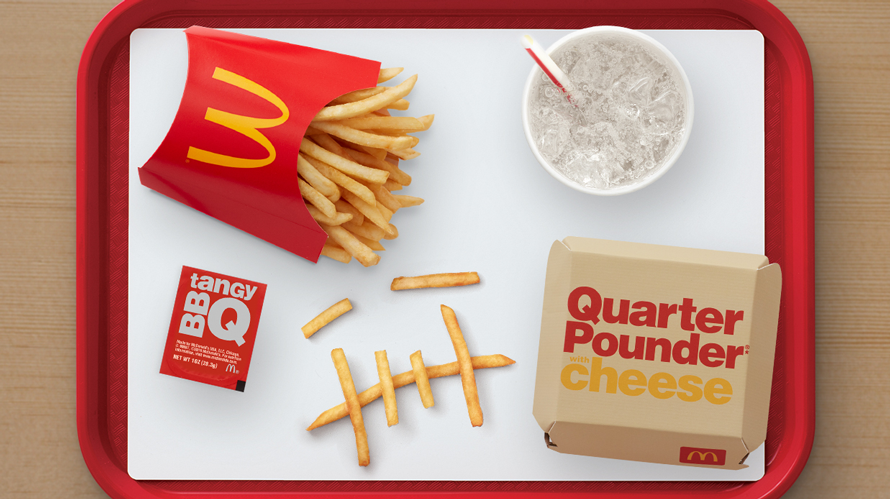Earlier this month, McDonald’s launched a promotion with Houston-based rapper Travis Scott by naming a meal after him, the first such deal of its kind in nearly three decades. The last time a celebrity had a meal named after them, it was NBA superstar Michael Jordan during the height of the Chicago Bulls hype in 1992.
That promotion was only offered within the Chicago area, though, while this one has aimed to draw fans into restaurants and onto the McDonald’s app nationwide. The associated McDonald’s-themed merchandise from Cactus Jack, Scott’s own brand available on his website, had some pieces sell out within seconds. The merch, which includes everything from $300 jeans to a $90 chicken nugget pillow, has been dropped in waves.
At restaurants, the popularity of the meals—$6 for a Quarter Pounder with cheese, bacon and lettuce, fries with barbecue sauce and a Sprite—have led to ingredient shortages in some parts of the country, evidence of fans’ enthusiastic response to the collaboration. A masked Scott personally served his meal to customers at the launch in California while sporting some of the limited edition merchandise.
The partnership is part of a broader marketing platform that McDonald’s launched earlier this year during Super Bowl season, according to Jennifer Healan, McDonald’s vp of U.S. marketing for brand content and engagement. The pregame ad was a simple one—just a top-down view of different celebrities’ go-to meals at McDonald’s, including Kanye and Kim Kardashian West, Whoopi Goldberg, Keith Urban and Stranger Things’ Millie Bobby Brown. After a list of celebrities, the ad, created by Wieden+Kennedy New York, moved on to fictional characters like the Big Bad Wolf, the Hamburglar and Dracula.
“All of our creative ideas start with a ‘fan truth,’” explained Healan. “In this particular one, the ‘fan truth’ was: Everyone has their own McDonald’s order.”
From there, the brand wanted to ensure that a celebrity partnership would be authentic, so it worked to find someone whose love for the brand was already evident. Scott, who was known to post about his trips McDonald’s well before the partnership was announced, was a perfect fit, said Healan.

“[Scott] had his own special McDonald’s order as he was growing up,” Healan said. Sharing that part of Scott’s history with his fans added value to the partnership, lending a sense of truth that seemed to resonate with fans. “It was just something that we believed was the perfect intersection of our fan base and our crew with Travis’s fan base.”
Regardless of this promotion’s success, there are important risks that brands should consider when linking up with a celebrity, according to Georgetown University marketing professor Christie Nordhielm. Celebrities are human and unpredictable, and there’s always a chance they’ll do something that doesn’t align with your brand or message—think Lance Armstrong or O.J. Simpson.
“You can’t control them, you don’t know what they’re going to do, and the stronger that connection is the between the celebrity and your brand, the more you’re going to suffer the damage of it” should something go awry, Nordhielm said.
But there’s also a risk in things going incredibly well, which can give the celebrity more power in renegotiating a new contract and ultimately capture more of the surplus in a follow-up campaign, Nordhielm added. And that’s often where marketers go wrong.
https://www.adweek.com/brand-marketing/what-you-can-learn-mcdonalds-travis-scott-partnership/

